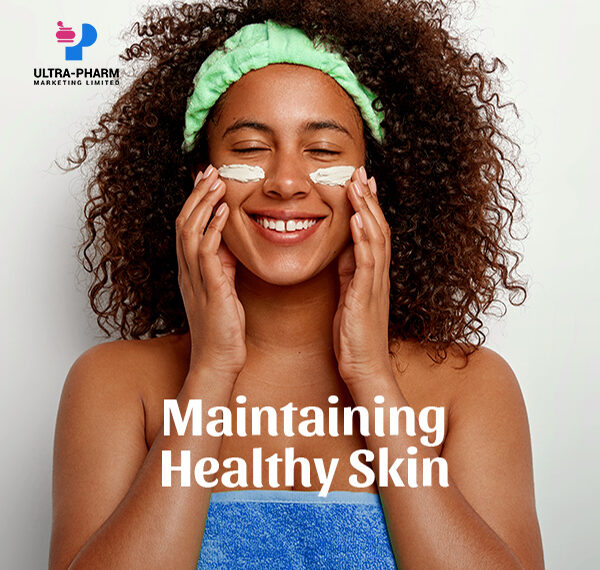Healthy skin doesn’t happen by accident. Your daily habits have a big impact on what you see in the mirror. Since your skin is your largest organ, skin health is linked to overall good health.
Here are seven ways you can create new habits to support healthy skin:
- Create and stick to a daily skincare regimen
Having a skincare routine may seem like a daunting task but rest assured the steps to healthy skin are easy to implement.
Ideally, your skin-care routine should consist of three main steps:
– Cleansing: Washing your face.
– Toning: Balancing the skin.
– Moisturizing: Hydrating and softening the skin.
It’s also important to note that healthy skin starts with knowing your skin type and choosing the best products that caters to your skin’s specific needs.
Using the wrong products can lead to irritated skin, breakouts and premature aging. Choosing the correct skin care routine for your skin type is essential for making your skin appear youthful, healthy and the best it can be.
- Protect yourself from the sun
The next step after your daily regime is to always use sunscreen. It will protect you from the harmful UV rays of the sun which is the number one cause of wrinkles, uneven skin tone, skin sagging, and other signs of skin aging.
Choose a sunscreen that is formulated to protect against both the UVA and UVB rays of the sun and apply it to exposed parts of your body every day.
- Don’t smoke
Cigarette smoking harms nearly every organ of the body, causes many diseases, and reduces the health of smokers in general.
The average cigarette contains a toxic cocktail of over 5000 chemicals and foreign substances. Some of the toxins in cigarette smoke can cause damage to collagen and elastin, which are fibrous components of the skin that keep it firm and supple.
This damage speeds up skin aging, making smokers more prone to wrinkles on their faces and body.
It is also important to note that scars, cuts, wounds, and broken bones tend to take longer to heal in smokers because their bodies are receiving less oxygen which is essential for cell repair.
- Eat a healthy diet
A healthy diet can help your skin health. Treat your skin kindly by eating antioxidant-rich fruit and vegetables, healthy fats from oily fish and nuts, and a varied and balanced diet.
Foods that are great for your skin health include:
- Yellow and orange fruits and vegetables
- Spinach and other green leafy vegetables
- Tomatoes
- Beans, peas, and lentils
- Salmon, mackerel and other fatty fish
- Nuts
It should also be noted that some foods cause skin damage. Research has shown that diets high in processed sugars and unhealthy fats can speed up skin aging.
- Avoid stress
Uncontrolled stress can make your skin more sensitive and cause acne breakouts and other skin problems.
Stress triggers a chemical response in your body that makes skin more sensitive and reactive. It causes your body to produce the hormone cortisol, which then makes your skin oily. Oily skin is more prone to acne and other skin problems.
Stress can also aggravate psoriasis, rosacea, and eczema.
- Stay hydrated
Drinking enough water is essential for overall skin health. Water plays a vital role in digestion, circulation, absorption, and even excretion.
Your skin is in fact an organ and therefore made up of cells that are made up of water. When these cells lack water, your skin will then in turn become dry and tight which makes skin more prone to wrinkling.
- Get your beauty sleep
Inadequate or disturbed sleep can wreak havoc on your skin.
The key is to get at least 7 – 9 quality hours of sleep each night. It’s during sleep that your skin’s blood flow increases, rebuilds its collagen and repairs damage from UV exposure, reducing wrinkles and age spots.
Your face is the first part of your body that others look at and having lovely skin will make you feel good about yourself. Make sure that you are consistent in your healthy habits to keep your skin looking its best.
